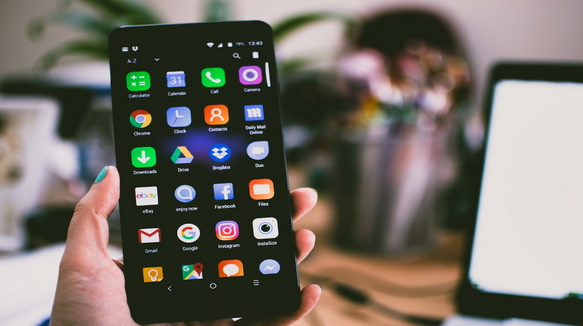We’re quick to limit kids’ screen time. Parents can also benefit from setting boundaries for themselves
- Written by Michael Wheeler, Physical activity researcher, Deakin University | Lecturer in science communication, The University of Melbourne

In many households, screens are part of daily life – from work to entertainment[1].
But for parents, setting boundaries around screens isn’t just about kids; it’s also about modelling a balanced approach to screen use. Our research[2] shows parents who spend excessive time on screens may unconsciously encourage similar habits in their children.
Excessive screen time in young children is linked to developmental delays[3] in communication and problem-solving. One explanation is that screen time displaces parent–child interactions[4] that are crucial for development. This is often framed as the child’s screen time displacing these interactions.
But when parents use their smartphones a lot, this is associated with lower responsiveness and attention[5] towards their children, particularly when this screen time occurs during routines such as meal time[6].
Parents don’t need to ban screens to be more present with their kids. If parents watch age-appropriate TV with their kids, this has a positive effect on literacy[7] – possibly due to conversations about the content of the show.
There is a lot parents can do[8] to foster healthier screen habits in the family through positive role-modelling and thoughtful management.
Managing screen time is also important for a parent’s own physical and mental health[9].
The health impact of sedentary screen time
Screen time often means sitting for long stretches, which can be bad for our physical and mental health.
Our work has shown prolonged periods of sitting can impair blood sugar regulation[10], blood pressure[11], brain blood flow[12] and cognitive function[13].
But that doesn’t mean you should you feel guilty every time you retire to the couch for some well-deserved Netflix.
Some of these effects can be eliminated by either exercising before a prolonged bout of sitting or breaking up sitting every 30 minutes with some light activity – ideally both.
You don’t even need to pause the TV to fit in these activity breaks. One study found that breaking up a sedentary evening of watching TV every 30 minutes with short bursts of bodyweight exercise (squats, calf raises and hip extensions) increased sleep duration by 30 minutes[15]. This is important because sleep boosts your immune system[16], which helps maintain good physical and mental health.
While exercise and sleep helps, screen content also matters. Mentally passive screen use – such as scrolling through social media – has been linked to higher risks of depression[17] and even dementia[18], whereas mentally active screen use (problem-solving and work tasks) may actually protect you.
While almost two-thirds of parents[19] think they can reduce their sedentary screen time, for the remaining third, swapping passive for mentally active screen time is another option.
Our eyes and brain need a break too
Our eyes and minds aren’t designed for constant screen time. Staring at a screen for too long can give us dry eyes, headaches and blurred vision – all symptoms of eye strain[20].
Screens also affect our brains. Research has found excessive and disordered screen use is linked to deficits in cognitive function[21]. Our brains need breaks to consolidate information and recharge. Without regular breaks, we risk cognitive burnout, which makes it harder to stay productive, focus and potentially even manage screen time.
What can we do?
Guidelines recommend[23] adults limit recreational sedentary screen time. But the message to simply “limit your screen time” may be unhelpful to many, especially when screens are embedded into modern life.
Here are some other ways to reduce the negative consequences of excessive screen time:
-
avoid digital eye strain. Follow the 20-20-20 rule[24]. Every 20 minutes, give your eyes a break by looking at something 20 feet (6 metres) away for 20 seconds
-
move regularly. Exercise regularly and break up sedentary screen time with activity every 30 minutes for metabolic and cognitive benefits
-
limit passive screen time. Try swapping some passive screen activities (doom scrolling) for mentally engaging ones, such as puzzles, creative projects or educational content
-
modelling balanced screen use for kids. This might mean viewing educational shows together and discussing them.
Finally, we can’t solely blame a lack of self-control for poor management of screen time. The content on our screens is designed to be addictive for parents and kids.
One parent reported that their child would avoid going to the toilet[25] to the point of wetting themselves when playing the online game Roblox, because they didn’t want their character to die.
Many parents can relate – albeit with better bladder control. We have all experienced doom scrolling where time seems to disappear, and we can’t even recall what we saw.
If you are at risk of doom scrolling right now, one idea is to listen to some tips on how to stop[26]. Consider going for a walk and giving yourself a break. You’ll feel better for it.
References
- ^ from work to entertainment (www.mdpi.com)
- ^ Our research (bmcpublichealth.biomedcentral.com)
- ^ developmental delays (jamanetwork.com)
- ^ displaces parent–child interactions (jamanetwork.com)
- ^ lower responsiveness and attention (doi.org)
- ^ occurs during routines such as meal time (jamanetwork.com)
- ^ positive effect on literacy (doi.org)
- ^ parents can do (theconversation.com)
- ^ physical and mental health (longevity.stanford.edu)
- ^ regulation (doi.org)
- ^ blood pressure (doi.org)
- ^ brain blood flow (doi.org)
- ^ cognitive function (doi.org)
- ^ Maxim Ibragimov/Shutterstock (www.shutterstock.com)
- ^ increased sleep duration by 30 minutes (bmjopensem.bmj.com)
- ^ boosts your immune system (journals.physiology.org)
- ^ depression (pubmed.ncbi.nlm.nih.gov)
- ^ dementia (www.pnas.org)
- ^ almost two-thirds of parents (doi.org)
- ^ eye strain (www.hopkinsmedicine.org)
- ^ deficits in cognitive function (doi.org)
- ^ Rawpixel.com/Shutterstock (www.shutterstock.com)
- ^ Guidelines recommend (csepguidelines.ca)
- ^ 20-20-20 rule (www.mayoclinic.org)
- ^ avoid going to the toilet (bmcpublichealth.biomedcentral.com)
- ^ listen to some tips on how to stop (blogs.unimelb.edu.au)
















